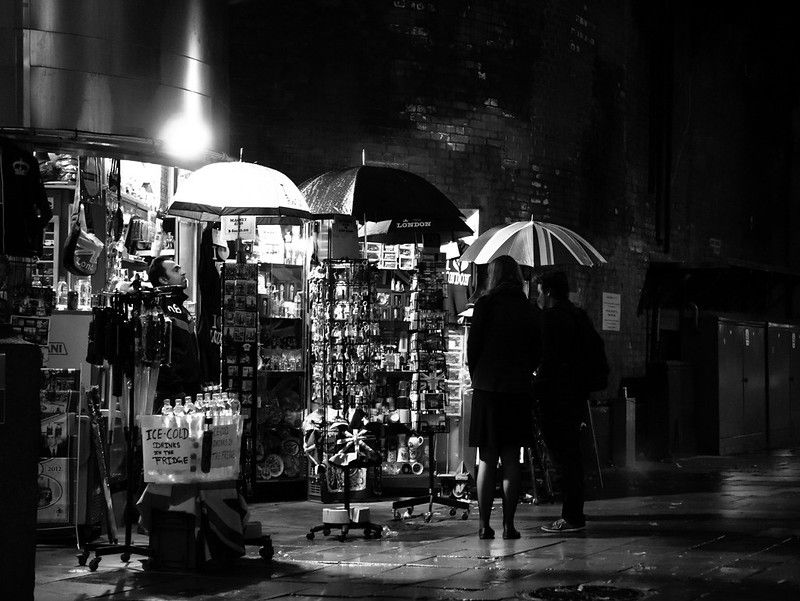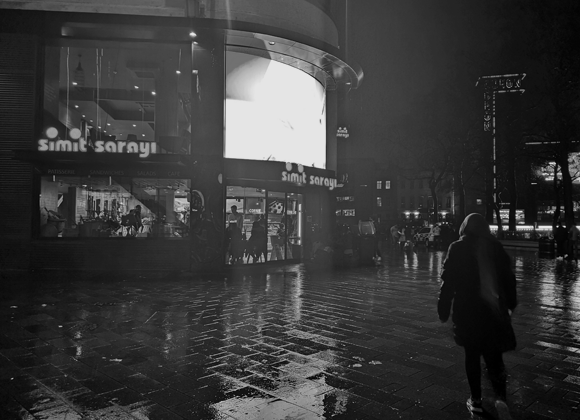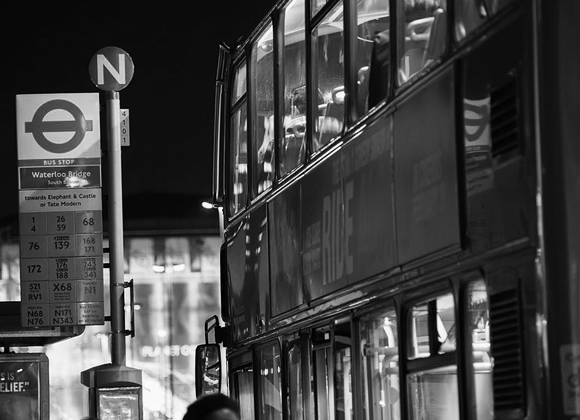In the last few months of 2015, I worked almost full time at a pub in south east London. Though perhaps pub doesn’t quite cut it. Rather, it was one of those infernal places where the weekend sees it straddle the line between lairy student dive bar and lairy student dive disco until 3am. It was tiring, almost illegally badly-paid and too busy to even have the consolation of workplace camaraderie.
At close on a Friday or Saturday, there would be a hasty clean and perhaps the offer of a can to be drunk on the nightbus home. And always, the sense of sprinting against the clock, trying to achieve the usual chores before the professional cleaners came in. We never saw them. The unspoken assumption was that it would be some kind of egregious timekeeping failure if we had. Every night, they would arrive and do their business, leaving the place spotless before another day broke—with the promise of more casually mindless debauchery to come, as it always did, the following night.
London has long been a 24-hour city, though not in the way dreamed of by Sadiq Khan or his gently ineffective American ‘Night Czar’, Amy Lamé. The additions of a night tube and Overground service have failed to immediately transform the city into New York at the same time as scores of London’s clubs and venues have been forced to shutter.

But the night has never just been about entertainment. For 1.6 million Londoners, it is their place of work. The office cleaners and night wardens, healthcare workers, bus drivers and hotel receptionists that keep the city running in the dark make up over a third of London’s total workforce. To the daylight majority, they are often kept invisible—the benevolent ghosts stocking the shelves at Pret and resetting office workspaces. But it wouldn't take long without their labour for normality to crumble away—even if their contributions are often so disregarded, in almost embarrassed silence.
It is an easy enough trap to fall into, even for those who don’t want to avert their eyes from reality. It comes down to a deceptively simple bind; either you live here or there, during the day or the night, with the two worlds rarely overlapping. In February, I was introduced to the work of Julius-Cezar MacQuarie, an anthropologist who has spent several years researching the lives of migrant night shift workers in London and whose work bends focus sharply back on to the marginalised and ignored.

It had started in 2013 when Cezar noticed just how invisible night workers were in scholarly literature, as well as wider public consciousness, particularly when they came from outside the EU. For months he had lived with men and women on the night shift, getting to know them and the unique difficulties that their working lives presented. His work has since formed the basis for a trilogy of short films made in conjunction with filmmaker, Tim Marrinan.
The latest and final part, released earlier in the year entitled The Sleeping Bat, depicts Ali, a young man trapped in poverty and the grinding patterns of his job at a night market, 6 days a week from 10pm to 9am. Like so many others in his situation, Ali just can’t see a way out. Sleepless and invisible, he feels like a hand is pushing him away from the potential fruits of the daytime economy.
“Poverty and precarity aren’t exclusive to nightwork,” as Cezar told me when we spoke over Skype, “but they are enhanced several times over by it. You need to pay the electricity bill after a sleepless night, otherwise, it will be cut off. Perhaps your English isn’t good and you rely on someone else to do it. And oh yeah, there’s that parking fine you need to sort out. There are just so many plates to spin, all at once. You might work at night, but you have to live some of your life in the day as well.”
For many years, I often wondered what it was, exactly, that my own father did during my childhood in the mid-1990s. He was a young man, far from his Spanish home, trying out the limits of a new life here in London, like so many of Cezar’s subjects. It was often a struggle, with bad employers and a tangled personal life, with many weeks marked by his absence from home. Some of those were due to his own nightwork on piecemeal construction projects around the city, many long and lonely hours spent out in the cold and dark, a shadow world that must have been so very far removed from the dreams of opportunity he’d thought would come true on his arrival.

The last few months and years have witnessed much talk about points-based immigration systems, “migrant labour” and the ravaging effects that our exit from the EU will have on essential, if often unglamorous, areas of the economy that depend upon free movement. We have heard from many experts, politicians and industry leaders about the ways that London’s hospitality and care sectors will struggle under the weight of the shortage. It’s a loudly-made case conveyed in sparsely economic terms, a matter of balance sheets and shortages of hours worked. The idea of 140,000 EU workers shut out from the UK under proposed new immigration laws is something to rally against, as is a prospective £26,600 minimum salary threshold. But nowhere have the voices of the night workers been represented, the vast majority of whom struggle to make anything like that number. Instead, their concerns—just like the acknowledgement of their crucial everyday contributions—have been ignored entirely.
I suppose that everyone has a night bus story to tell. For many, they serve as a reminder of weekend nights spent out that bit too late, the bookend to whatever event you’ve happened to find yourself at. How often do you really find yourself waiting for their erratic appearance, unless as a last resort? I remember when I depended on them for my own travel home, after long shifts at my loathed pub job. Mostly, it was quiet, even at 4 or 5am. Exhausted and grateful, I remember looking around at my fellow passengers and thinking how few of them seemed to be revellers on their way to the next pitstop. Perhaps that shouldn’t have been a surprise. After all, the statistics tell us that every other person on a London night bus is either heading to or from work.













